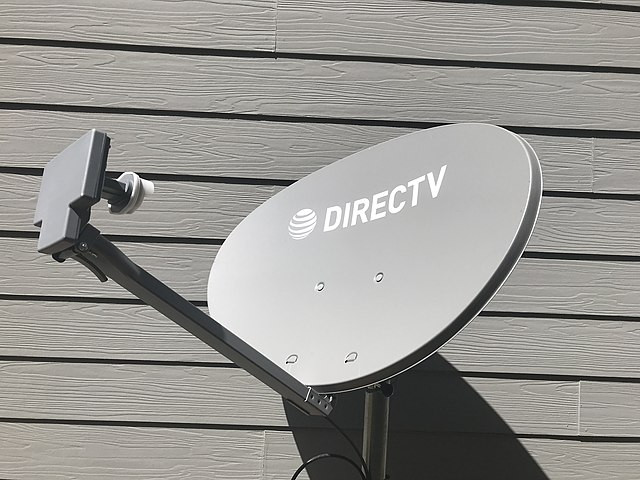In a monumental merger that has been anticipated for years, DirecTV has announced its acquisition of long-time rival Dish Network for just $1, marking the end of decades of negotiations between the two satellite TV giants. The deal, which also involves DirecTV taking on Dish's billions in debt, reflects the immense challenges both companies have faced as streaming services dominate the media landscape and cord-cutting reshapes consumer behavior.
The agreement marks a pivotal moment for DirecTV and Dish, both of which have seen their subscriber numbers plummet as platforms like Netflix, Hulu, and Amazon Prime Video continue to siphon customers away from traditional pay-TV services. In response, the merger aims to consolidate the companies' resources, reduce costs, and create a more competitive force in an industry increasingly dominated by tech companies.
A DirecTV spokesperson noted that the combination of the two companies would result in "greater scale and stability in an evolving video marketplace." The newly merged entity will serve roughly 20 million subscribers, a significant decline from DirecTV's peak of 20.3 million subscribers in 2015. However, the deal positions the companies to better compete against cable and streaming rivals, with plans to offer skinnier content bundles and reduce operational redundancies.
In exchange for taking on Dish's debt, DirecTV has secured a $10 billion loan from private equity firm TPG, which also acquired AT&T's remaining 70% stake in DirecTV. The deal effectively gives TPG complete control of DirecTV, three years after it acquired a 30% stake from AT&T. The loan will help Dish meet a critical $2 billion debt maturity deadline in November, alleviating some of the financial pressure that had been weighing down the company.
Despite the seemingly low purchase price of $1, the deal reflects the dire financial circumstances both companies face. DirecTV and Dish have been grappling with escalating operational costs and declining revenues due to the rapid shift in consumer preferences toward on-demand streaming services. The deal provides Dish's parent company, EchoStar, with a pathway to address its mounting debt and refocus its operations on other areas of business, such as its wireless spectrum assets and the Boost Mobile brand.
The combined company will be led by DirecTV CEO Bill Morrow and CFO Ray Carpenter, with headquarters remaining in El Segundo, California. Morrow stated that the merger would allow DirecTV to work more efficiently with programmers and reduce operational costs, with potential savings of $1 billion annually after three years. He also emphasized that the new entity would be able to offer more flexible content packages to consumers, a move aimed at attracting customers back to satellite TV.
However, the deal still faces several regulatory hurdles, including approval from U.S. antitrust authorities. Given the significant decline in the traditional pay-TV market, analysts believe the merger is likely to be approved, as the competitive landscape has shifted dramatically in recent years. In 2002, a proposed merger between DirecTV and Dish was blocked by regulators, but industry experts argue that with the rise of streaming services, the dynamics of the market have changed considerably.
Craig Moffett, a principal analyst at MoffettNathanson, commented on the merger's necessity: "It's hard to argue that a merger shouldn't happen; it clearly should. Consolidation during a period of secular decline is always to be expected. But it would be a mistake to overestimate its importance. Adding a year or so to the expected life of satellite TV isn't going to change the narrative for programmers, distributors, or even for satellite TV."
The merger marks a significant turning point for DirecTV and Dish, both of which have struggled to adapt to the changing media environment. DirecTV suffered a blow two years ago when it lost its exclusive rights to the NFL Sunday Ticket package, which was a key draw for many subscribers. Google's YouTube secured the rights to the package starting with the 2023-24 NFL season, further diminishing DirecTV's competitive edge.
Both companies have launched their own internet-based TV services, such as Dish's Sling TV, but these ventures have not been enough to offset the losses on the satellite side. Dish, which once boasted over 14 million subscribers, now serves just over 8 million, including Sling TV customers. DirecTV has seen a similar decline, dropping to around 11 million subscribers by the end of 2023.
The merger also raises questions about the future of the Dish brand. Although DirecTV's spokesperson stated there are no immediate plans to phase out Dish or its Sling TV service, the long-term strategy remains unclear. For now, the companies will continue to operate under their respective brands while focusing on cost-cutting measures and improving operational efficiency.
As the media landscape continues to evolve, the DirecTV-Dish merger represents a last-ditch effort by two legacy satellite TV providers to stay relevant in an industry where streaming services have upended traditional business models. The success of this merger will depend on how effectively the combined company can compete with larger tech-driven platforms and adapt to the changing demands of consumers.





